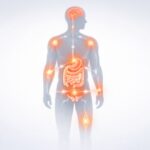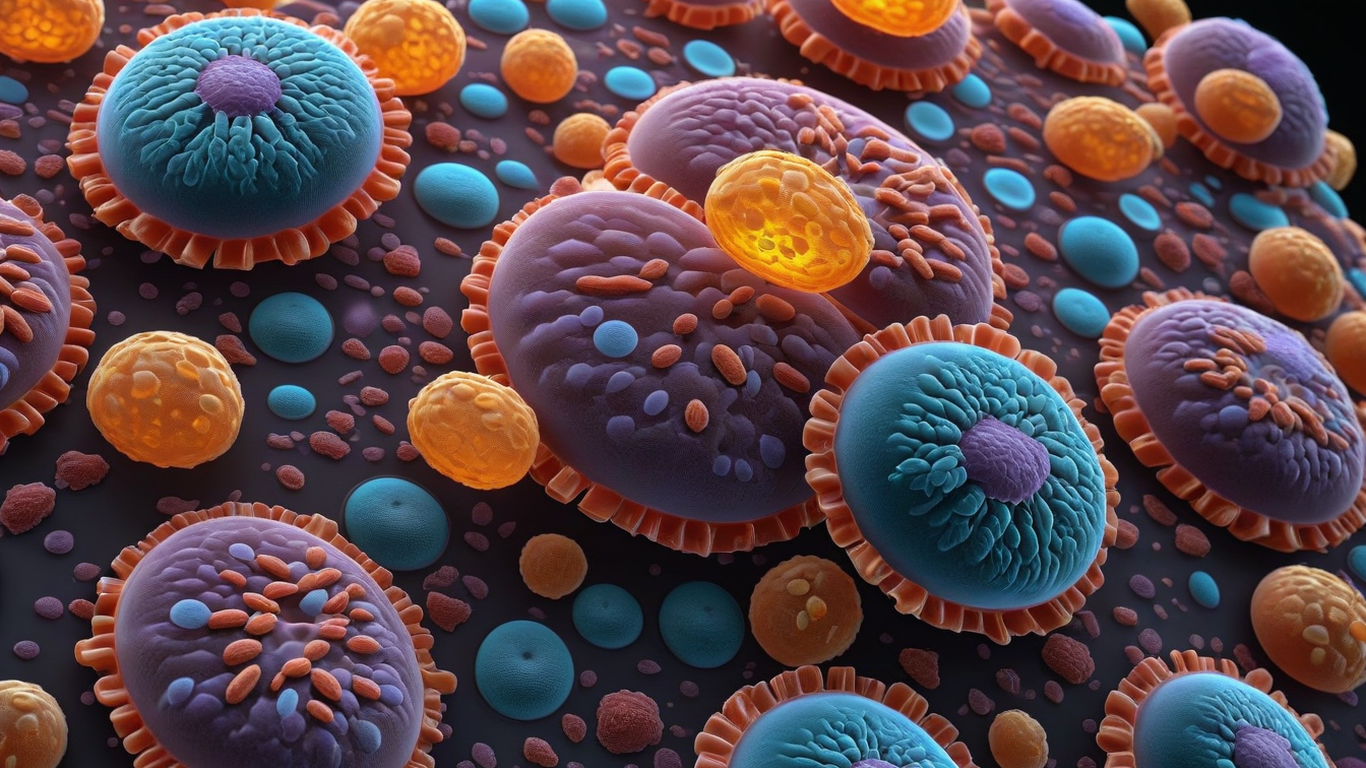
In today’s fast-paced world, many of us are grappling with the effects of alcohol and sugar on our bodies. Excessive consumption of these substances can have detrimental consequences for our health and well-being. However, by understanding the impact they have on our bodies and implementing effective strategies to reduce consumption, we can take significant steps toward a healthier lifestyle. This blog post delves into the effects of alcohol and sugar on the body and provides practical strategies to help you reduce your intake.
Table of Contents
- The Effects of Alcohol on the Body
1.1. Alcohol Effects on the Liver
1.2. Impact on the Brain and Central Nervous System
1.3. Influence on Cardiovascular Health
1.4. Effects on Sleep and Mental Well-being - The Effects of Sugar on the Body
2.1. Sugar’s Impact on Weight and Obesity
2.2. Influence on Dental Health
2.3. Blood Sugar and Insulin Response
2.4. Sugar and Inflammation - Strategies for Reducing Alcohol Consumption
3.1. Set Realistic Goals and Limits
3.2. Seek Support and Accountability
3.3. Find Alternative Activities and Hobbies
3.4. Practice Mindfulness and Stress Management - Strategies for Reducing Sugar Consumption
4.1. Gradual Reduction and Substitution
4.2. Read Food Labels and Be Aware of Hidden Sugars
4.3. Choose Whole Foods and Cook at Home
4.4. Create a Supportive Environment - Conclusion
- Special Note To Reader
- FAQ
- Articles of Interest
The Effects of Alcohol on the Body
Alcohol Effects on the Liver:
Alcohol is primarily metabolized by the liver, and excessive alcohol consumption can lead to various liver disorders. Prolonged and heavy drinking can cause fatty liver, alcoholic hepatitis, and even cirrhosis. These conditions disrupt the liver’s normal functioning, impairing its ability to detoxify the body and process nutrients.
Impact on the Brain and Central Nervous System:
Alcohol affects the brain and central nervous system, resulting in altered cognition, impaired judgment, and slowed reflexes. It can interfere with neurotransmitter levels, leading to mood swings, memory problems, and difficulties with concentration. Long-term alcohol abuse can also contribute to neurological disorders such as Wernicke-Korsakoff syndrome.
Influence on Cardiovascular Health:
Excessive alcohol consumption can have detrimental effects on the cardiovascular system. It can raise blood pressure, increase the risk of heart disease, and contribute to the development of arrhythmias. Alcohol can also weaken the heart muscle, leading to conditions such as alcoholic cardiomyopathy.
Effects on Sleep and Mental Well-being:
Although alcohol may initially induce drowsiness, it disrupts the quality of sleep. It can interfere with the REM stage of sleep, resulting in fragmented and less restorative sleep patterns. Additionally, alcohol is a depressant that can worsen symptoms of anxiety and depression. Regular alcohol use can also lead to dependence and alcohol use disorder, negatively impacting mental well-being.
The Effects of Sugar on the Body
Sugar’s Impact on Weight and Obesity:
Excessive sugar consumption is strongly associated with weight gain and obesity. Sugary foods and beverages are often high in calories and can contribute to increased calorie intake. Consuming too much sugar can also lead to insulin resistance, which promotes fat storage and inhibits proper metabolism.
Influence on Dental Health:
Sugar consumption, especially in the form of sugary drinks and snacks, is a leading cause of tooth decay. Bacteria in the mouth feed on sugar, producing acids that erode tooth enamel. Over time, this can lead to cavities, gum disease, and dental deterioration.
Blood Sugar and Insulin Response:
Consuming foods high in sugar causes a rapid spike in blood sugar levels. In response, the body releases insulin to regulate glucose levels. With excessive sugar intake, the body may become less sensitive to insulin, leading to insulin resistance and an increased risk of developing type 2 diabetes.
Sugar and Inflammation:
Research suggests that excessive sugar consumption may contribute to chronic inflammation in the body. High sugar diets can trigger the release of pro-inflammatory cytokines, leading to a state of low-grade inflammation. Chronic inflammation is linked to various health conditions, including heart disease, diabetes, and certain types of cancer.
Strategies for Reducing Alcohol Consumption
Set Realistic Goals and Limits:
Establish specific and attainable goals for reducing alcohol consumption. Start by gradually decreasing the number of drinking days per week or setting limits on the number of drinks per occasion. Create a personalized plan that suits your lifestyle and commit to it.
Seek Support and Accountability:
Enlist the support of friends, family, or a support group when reducing alcohol consumption. Having someone to confide in and hold you accountable can greatly increase your chances of success. Consider joining alcohol moderation programs or seeking professional help if needed.
Find Alternative Activities and Hobbies:
Identify and engage in alternative activities or hobbies that do not revolve around alcohol. Explore new interests, exercise regularly, join clubs or organizations, or pursue creative outlets. Having fulfilling and enjoyable alternatives will make it easier to reduce alcohol consumption.
Practice Mindfulness and Stress Management:
Developing mindfulness techniques and stress management strategies can help reduce the reliance on alcohol as a coping mechanism. Engage in activities such as meditation, deep breathing exercises, or yoga to promote relaxation and better manage stress. Learning healthy ways to deal with stress can minimize the temptation to turn to alcohol.
Strategies for Reducing Sugar Consumption
Gradual Reduction and Substitution:
Rather than trying to eliminate sugar completely overnight, opt for a gradual reduction approach. Start by cutting back on sugary snacks, beverages, and processed foods. Replace sugary treats with healthier alternatives like fresh fruits, natural sweeteners, or sugar-free options. This allows your taste buds to adjust gradually while still satisfying your cravings.
Read Food Labels and Be Aware of Hidden Sugars:
Become a vigilant reader of food labels to identify hidden sugars in packaged products. Sugar can often hide under different names such as sucrose, high fructose corn syrup, or dextrose. Pay attention to ingredient lists and choose products with lower sugar content. Opt for whole foods whenever possible, as they contain less added sugars compared to processed foods.
Choose Whole Foods and Cook at Home:
Focus on consuming whole, unprocessed foods that are naturally low in sugar. Incorporate plenty of vegetables, lean proteins, whole grains, and healthy fats into your meals. Cooking at home allows you to have better control over ingredients and sugar content, making it easier to reduce your overall sugar intake.
Create a Supportive Environment:
Surround yourself with a supportive environment that encourages healthy eating habits. Inform your friends, family, and coworkers about your goals and ask for their understanding. Seek out like-minded individuals who share similar aspirations for reducing sugar consumption. Consider joining online communities or participating in group challenges focused on healthier eating habits.
Conclusion
Alcohol and sugar, when consumed excessively, can have significant adverse effects on our bodies. Alcohol can harm the liver, brain, and cardiovascular system, while sugar can contribute to weight gain, dental problems, and inflammation. Fortunately, there are strategies we can employ to reduce our consumption of these substances and promote a healthier lifestyle.
When it comes to alcohol, setting realistic goals, seeking support, and finding alternative activities can help in reducing consumption. For sugar, gradual reduction, reading food labels, choosing whole foods, and creating a supportive environment are effective strategies. Additionally, practicing mindfulness and stress management techniques can aid in curbing both alcohol and sugar cravings.
Remember, it’s important to prioritize your health and well-being by making conscious choices regarding alcohol and sugar consumption. By implementing these strategies, you can take control of your habits and pave the way toward a healthier and happier life.
Special Note To Reader
This blog post contains original content written specifically for this purpose. The information provided is based on research and general knowledge about the effects of alcohol and sugar on the body. For personalized advice, consult with a healthcare professional or specialist.
FAQs
What are the immediate effects of alcohol on the body?
Alcohol can quickly impair cognitive function, coordination, and judgment. It may also cause a sense of relaxation or euphoria initially.
How does alcohol affect the liver?
Excessive alcohol consumption can lead to various liver disorders, including fatty liver, alcoholic hepatitis, and cirrhosis, which can disrupt the liver’s normal functions.
Does sugar consumption lead to weight gain?
Yes, consuming sugary foods and beverages can contribute to weight gain. They are often high in calories and can lead to increased calorie intake, promoting weight gain and obesity.
What impact does sugar have on dental health?
Sugar consumption can cause tooth decay and cavities. Bacteria in the mouth feed on sugar, producing acids that erode tooth enamel and lead to dental problems.
How does alcohol affect sleep patterns?
While alcohol may induce drowsiness, it disrupts the quality of sleep. It can interfere with the REM stage, leading to fragmented and less restorative sleep.
What are some effective strategies for reducing alcohol consumption?
Setting realistic goals and limits, seeking support and accountability, finding alternative activities, and practicing mindfulness and stress management can help reduce alcohol consumption.
How can I reduce sugar cravings and gradually cut back on sugar?
Gradual reduction and substitution, reading food labels, choosing whole foods, and creating a supportive environment are effective strategies to reduce sugar consumption.
Is it necessary to eliminate all sugars from my diet?
It is not necessary to eliminate all sugars from your diet. Focus on reducing added sugars from processed foods and beverages while incorporating natural sugars from fruits in moderation.
Can mindfulness practices help with reducing alcohol and sugar consumption?
Yes, practicing mindfulness techniques can help increase awareness of cravings and improve self-control when it comes to alcohol and sugar consumption.
Should I seek professional help for alcohol or sugar addiction?
If you believe you have an alcohol or sugar addiction and are struggling to reduce consumption on your own, seeking professional help from healthcare providers or addiction specialists is highly recommended.
Remember, while these FAQs provide general information, it is important to consult with healthcare professionals or specialists for personalized advice regarding alcohol and sugar consumption.

Articles of Interest
Can AmiClear Really Help You Manage Your Blood Sugar Levels? Here’s What You Need to Know.
The Role of Stress in Overall Health and Ways to Manage Stress Effectively
The Surprising Science of Intermittent Fasting: A Proven Weight Loss Strategy











